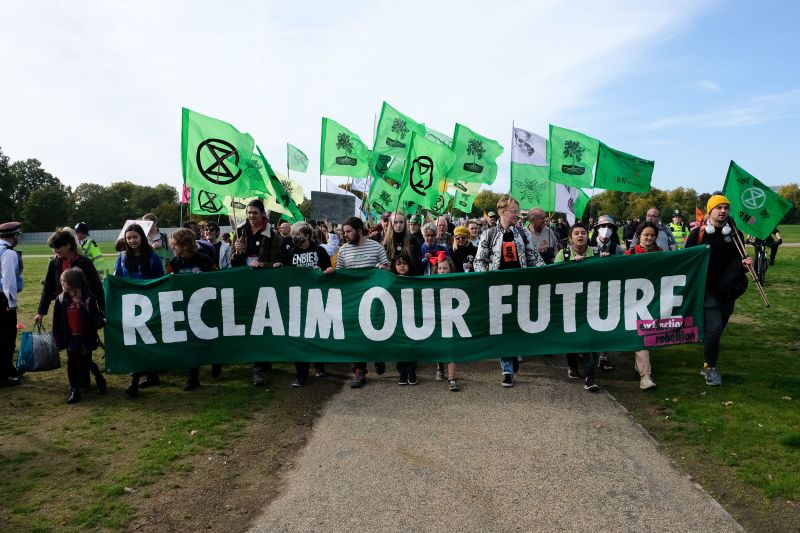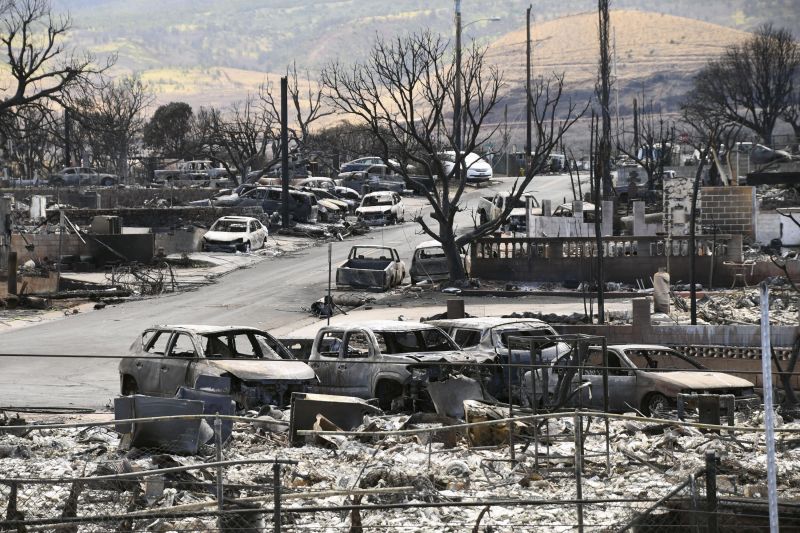
The Battle for Climate Activism: A Look at the UK's Crackdown on Peaceful Protesters

The treatment of climate activists in the United Kingdom has sparked concern and criticism from the United Nations envoy, triggering a debate on the rights of peaceful protesters and the government's response to disruptive actions. This article delves into the escalating tensions and the impact on civil society.
The UN's Alarming Report
A recent report published by the United Nations has shed light on the treatment of climate activists in the United Kingdom, raising serious concerns about the crackdown on peaceful protesters. The UN's Special Rapporteur on Environmental Defenders, Michel Forst, expressed his distress and alarm at the situation, emphasizing the need for urgent attention to the issue.
Extinction Rebellion assemble and march in Hyde Park, London, in October 2022.
During his visit to the UK, Forst met with various stakeholders, including politicians, NGOs, activists, and lawyers, to gather firsthand information about the challenges faced by environmental defenders. The report highlighted the use of regressive laws to prosecute peaceful protesters, imposition of harsh bail conditions, and the sentencing of activists to jail terms. These developments have sparked widespread criticism and debate about the rights of individuals to engage in peaceful protest without facing severe repercussions.
Government Response and Legal Measures
The UK government's response to climate and environmental protests has drawn attention to the use of legal measures and enforcement tactics to curb disruptive actions. In recent years, authorities have intensified their efforts to address protests that obstruct public spaces, leading to the introduction of new legislation granting police extended powers to intervene in such demonstrations.
Notably, the implementation of these measures resulted in the sentencing of a climate protester to a six-month prison term for participating in a slow march, a move that sparked outrage and raised questions about the proportionality of the punishment. The report highlighted the unprecedented nature of imprisoning individuals for peaceful protest, signaling a shift in the government's approach to handling environmental activism.
Impact on Civil Society and Rights
The UN report also emphasized the broader impact of the government's actions on civil society and fundamental rights. It highlighted instances where judges prohibited defendants from explaining the motivation behind their protest, effectively silencing their voices and undermining their right to a fair trial. Additionally, the imposition of stringent bail conditions, including electronic ankle tags and curfews, raised concerns about the erosion of individuals' rights to engage in peaceful protest without undue restrictions.
Damage in Lahaina caused by deadly wildfires on the island of Maui in Hawaii on August 16, 2023.
Furthermore, the report underscored the stigmatization of environmental defenders by the media and political figures, exposing them to threats, abuse, and physical attacks. This toxic discourse has not only jeopardized the safety of activists but has also provided a pretext for the adoption of increasingly severe and draconian measures against them. The chilling effect of these developments on civil society and the right to peaceful protest has become a focal point of debate and advocacy efforts to safeguard the rights of environmental defenders.









